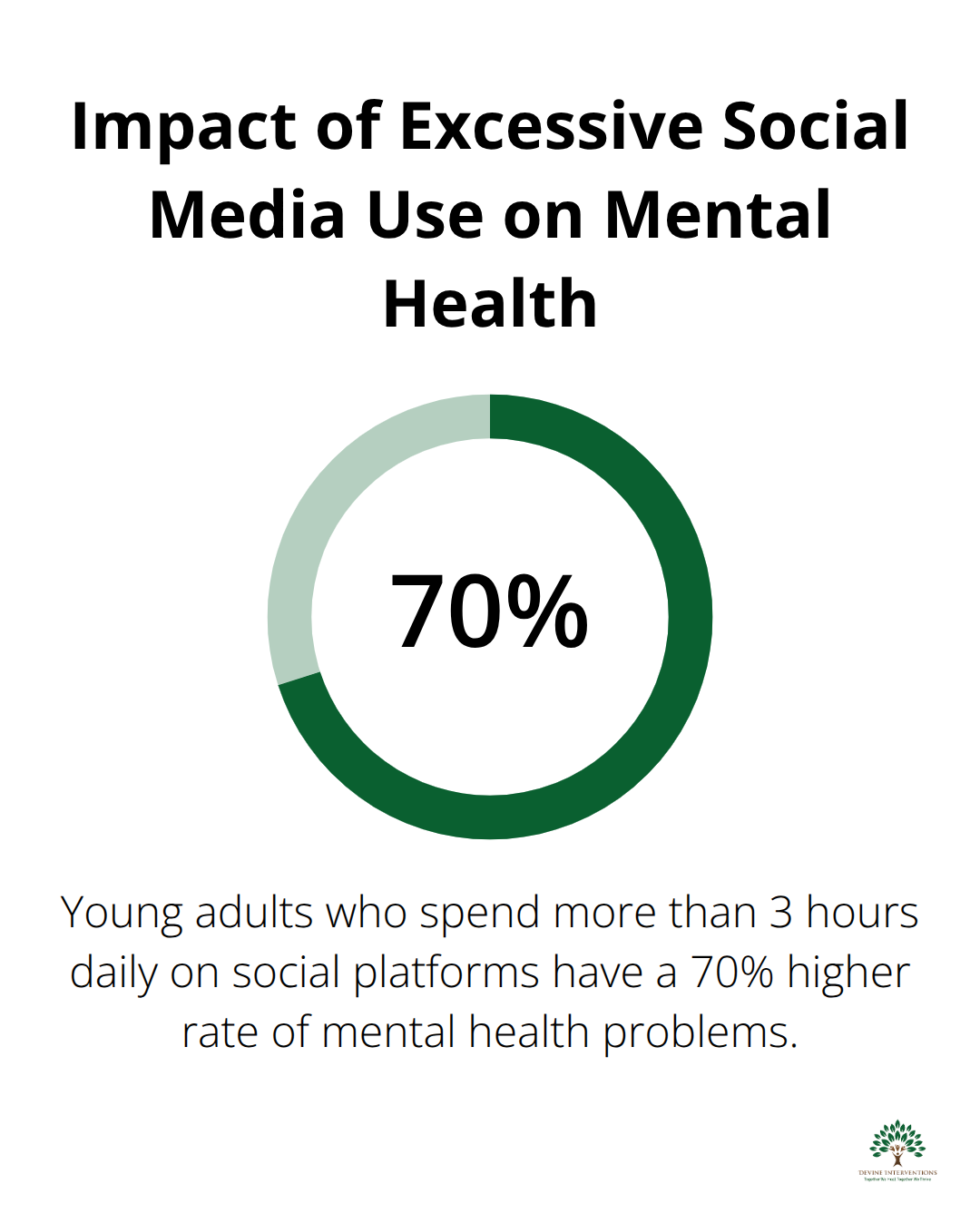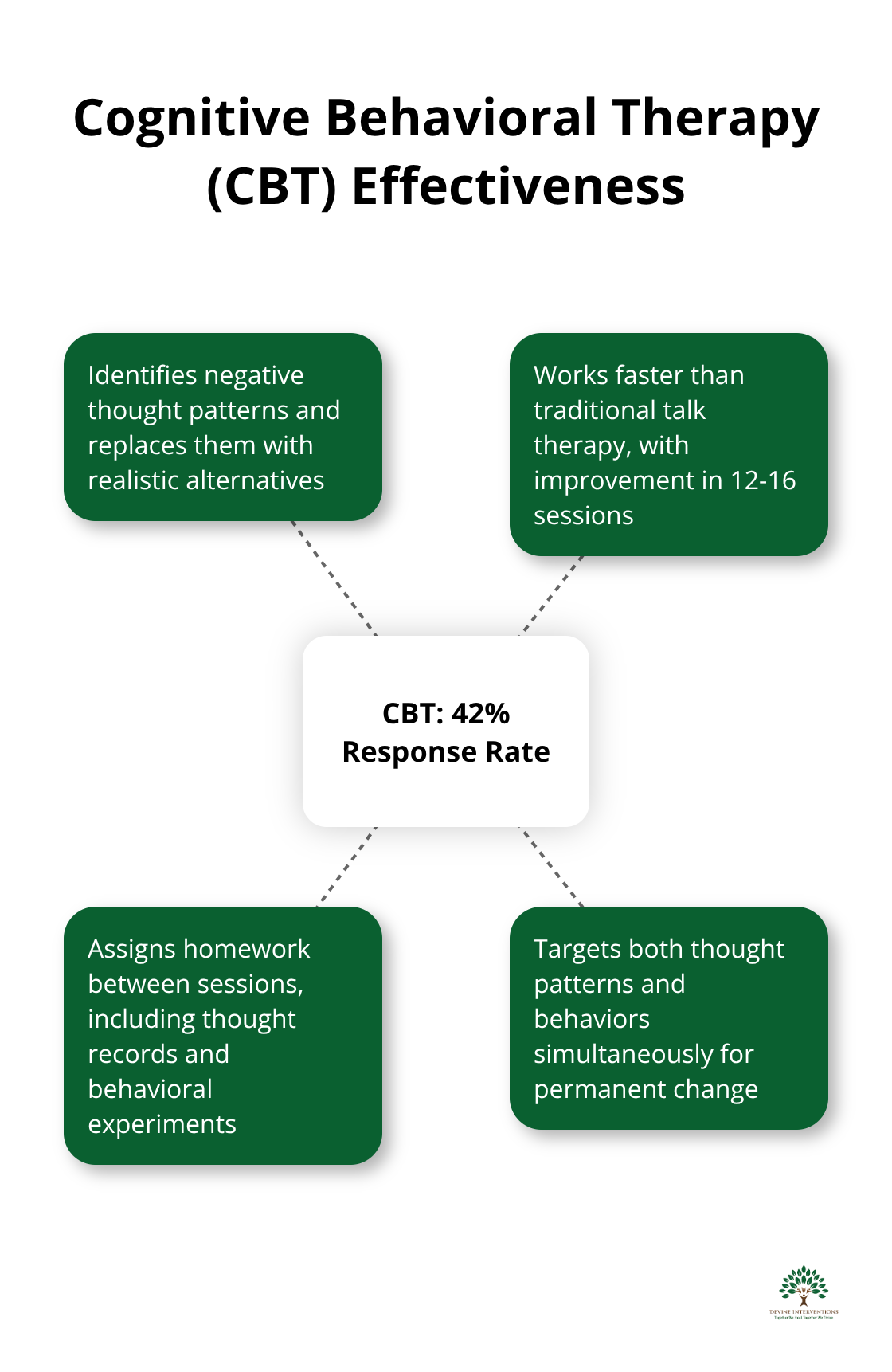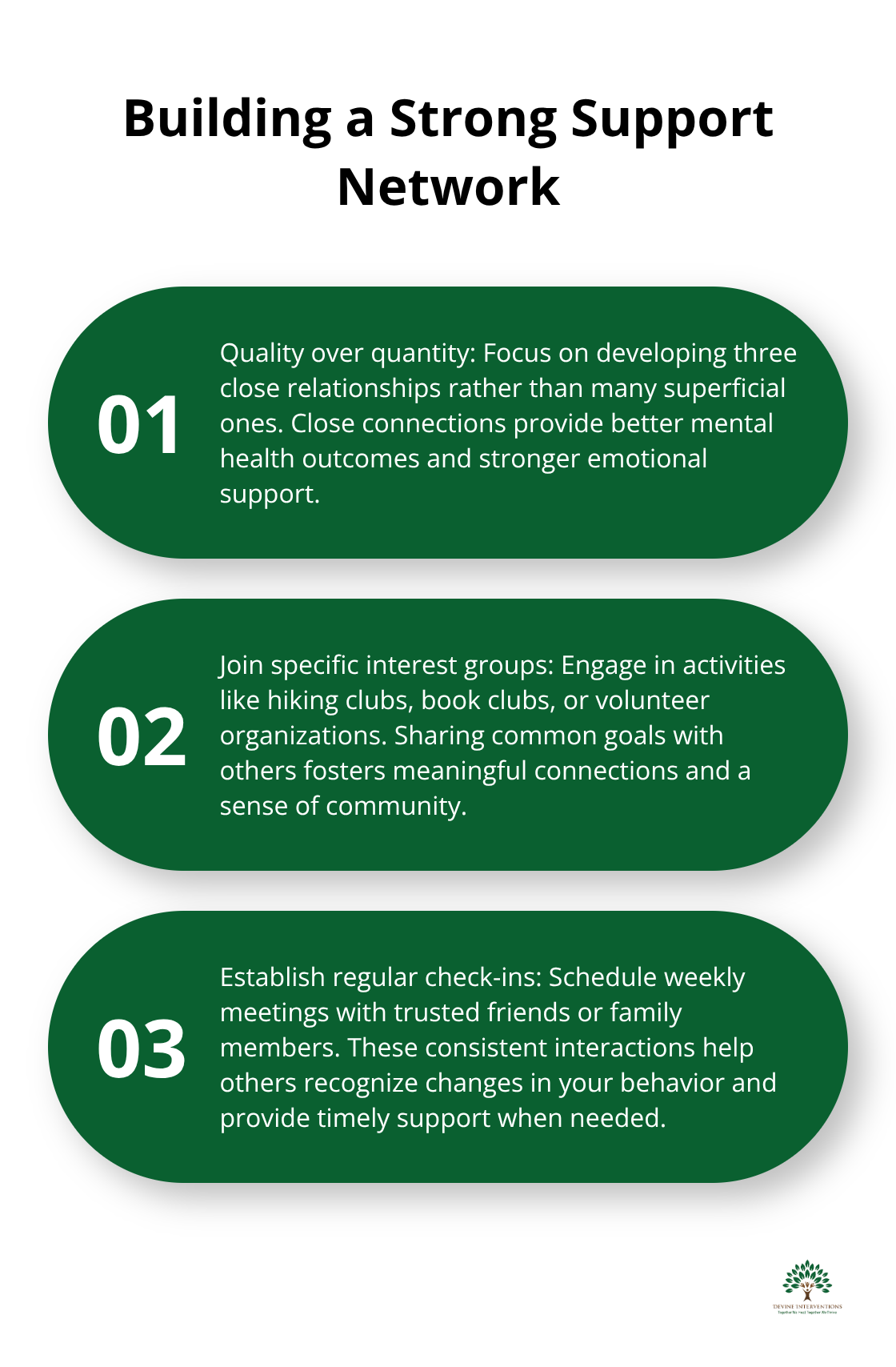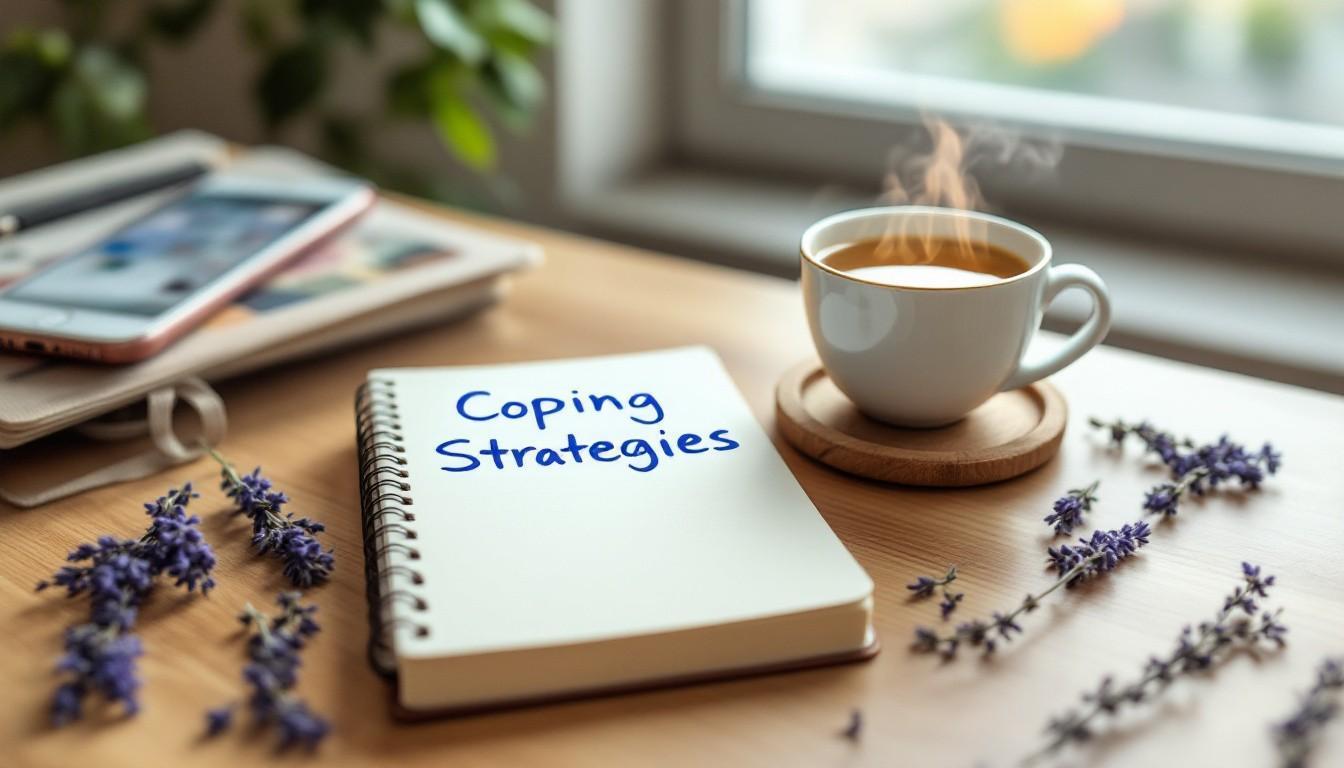Mental health challenges affect millions of people worldwide, yet many struggle to find the right support. The path to wellness often feels overwhelming when faced with countless treatment options and conflicting advice.
At Devine Interventions, we believe there are infinite solutions for mental wellness tailored to each person’s unique needs. This guide explores evidence-based approaches that create lasting change and practical strategies you can implement today.
Understanding Modern Mental Health Challenges
Mental health statistics paint a stark picture across all demographics. The World Health Organization reports that depression and anxiety disorders cost the global economy $1 trillion annually in lost productivity. Among teenagers, anxiety rates have increased by 52% between 2005 and 2017. Adults aged 18-25 show the highest prevalence of mental illness at 30%, while even seniors over 65 experience depression at rates of 13.8%. The numbers reveal an unprecedented mental health crisis that spans every generation.
Social Media Destroys Mental Wellbeing
Social media platforms systematically damage mental wellbeing through comparison triggers and dopamine manipulation. Studies show that people who limit social media to 30 minutes per day reduce depression and loneliness within one week. Instagram and TikTok algorithms specifically target vulnerable users with content that amplifies negative emotions. Young adults who spend more than 3 hours daily on social platforms show 70% higher rates of mental health problems. The solution isn’t moderation-it’s aggressive digital boundaries and scheduled offline periods.

Most People Never Access Professional Help
Only 43% of adults with mental illness receive treatment (this leaves 26 million Americans without care according to Mental Health America). The barriers are systematic: average wait times for therapy appointments stretch 6-8 weeks in most cities, while costs range from $100-200 per session without insurance. Stigma remains the biggest obstacle, with 60% of people who avoid treatment cite shame or fear of judgment. Geographic isolation compounds the problem, particularly in rural areas where mental health providers serve populations 3 times larger than recommended ratios.
Digital Overload Overwhelms Our Brains
Constant notifications and information overload create chronic stress responses that mirror anxiety disorders. The average person checks their phone 96 times daily, interrupting focus every 11 minutes. This digital fragmentation prevents deep rest and recovery that our brains need for emotional regulation. Sleep quality suffers when screens emit blue light that disrupts melatonin production, creating a cycle where poor sleep worsens mental health symptoms.
These challenges require professional intervention and evidence-based treatment approaches that address both symptoms and root causes.
Evidence-Based Treatment Approaches That Work
Cognitive Behavioral Therapy stands as the gold standard for anxiety and depression treatment, with 42% response rates when trained professionals deliver the care. The American Psychological Association confirms CBT works faster than traditional talk therapy, with most people who see improvement within 12-16 sessions. CBT teaches concrete skills to identify negative thought patterns and replace them with realistic alternatives. Therapists assign homework between sessions, which includes thought records and behavioral experiments that create measurable progress. The technique works because it targets both thought patterns and behaviors simultaneously, which creates permanent change rather than temporary relief.

Medication Management Requires Professional Oversight
Medication management achieves optimal results when professionals combine it with therapy, not as a standalone treatment. Research shows that patients who receive both antidepressants and CBT have better outcomes compared to medication alone, with only 20% of youth showing stable remission over time. Psychiatric providers should conduct comprehensive assessments every 4-6 weeks during the initial treatment phase, while they adjust dosages based on side effects and symptom improvement. Modern antidepressants like SSRIs typically require 6-8 weeks to reach full effectiveness, while anti-anxiety medications work within hours but carry dependency risks (which makes professional monitoring essential).
Integrated Care Models Produce Superior Outcomes
Integrated care models where therapists and psychiatrists coordinate treatment plans produce the best outcomes for patients. These collaborative approaches reduce communication gaps that often derail treatment progress. Providers share treatment notes and adjust strategies based on real-time feedback from both therapy sessions and medication responses. Patients benefit from consistent messaging across all treatment providers, which eliminates confusion about treatment goals and expectations.
Family and Group Therapy Create Accountability Systems
Family and group therapy create accountability systems that individual therapy cannot match. Research from the American Family Therapy Academy demonstrates that family involvement reduces treatment dropout rates by 40% and prevents relapse in 65% of cases. Group therapy costs 60% less than individual sessions while it provides peer support that accelerates recovery. Participants learn from others who face similar challenges, which reduces isolation and shame that often perpetuate mental health problems. Family therapy addresses communication patterns and boundary issues that contribute to stress and conflict (making it particularly effective for long-term recovery).
These evidence-based approaches form the foundation of effective mental health treatment, but success depends on how you implement them in your personal wellness strategy.
Building Your Personal Mental Wellness Strategy
Mental wellness requires proactive monitoring of your emotional patterns and stress responses. Research from the National Institute of Mental Health provides resources on depression signs, symptoms, and treatments. Track sleep quality, energy levels, and social interactions in a simple journal or phone app. Notice when irritability increases, concentration drops, or you start to avoid social activities. These early warning signs appear before major mental health episodes and give you time to adjust your routine or seek professional support. Physical symptoms like headaches, muscle tension, or digestive issues often signal emotional distress before psychological symptoms emerge.
Identify Your Personal Warning Signs
Your body sends specific signals before mental health episodes occur. Monitor changes in appetite, sleep patterns, and social withdrawal that persist for more than three days. Track when you feel overwhelmed by routine tasks or when decision-making becomes difficult. Notice if you cancel plans repeatedly or lose interest in activities you normally enjoy. Document these patterns in a mood tracking app or simple notebook. The data reveals your unique warning system and helps you recognize when professional intervention becomes necessary.
Build Support Networks That Actually Help
Strong social connections reduce depression risk according to research from Harvard Medical School’s longitudinal studies spanning multiple countries and cultures. Quality matters more than quantity – three close relationships provide better mental health outcomes than ten superficial ones. Join specific interest groups like hiking clubs, book clubs, or volunteer organizations where you share common goals with others. Professional support groups for anxiety or depression create accountability that friends and family cannot provide. Schedule weekly check-ins with trusted friends or family members who can recognize changes in your behavior.

Create Non-Negotiable Daily Practices
Daily stress management requires consistent practices that activate your parasympathetic nervous system. Mindfulness meditation for 10 minutes daily reduces cortisol levels within weeks according to research. Exercise releases endorphins that improve mood for hours post-workout, making morning physical activity particularly effective for all-day mental stability. Deep breathing exercises that use the 4-7-8 technique lower blood pressure and heart rate within minutes. Establish a technology cutoff 2 hours before bedtime to improve sleep quality, which directly impacts emotional regulation the following day.
Develop Professional Support Systems
Professional mental health support provides tools and strategies that self-help cannot match. Therapists teach specific techniques for managing anxiety, depression, and stress that you can apply immediately. Regular therapy sessions create accountability and progress tracking that accelerates recovery. Mental health professionals can identify patterns you might miss and adjust treatment approaches based on your response. They also coordinate with other healthcare providers to address physical symptoms that impact mental wellness.
Final Thoughts
Professional mental health support transforms lives when you take that first step. At Devine Interventions, we provide comprehensive care that combines evidence-based therapy with compassionate support. Our team offers the infinite solutions for mental wellness that address your unique needs and circumstances.
Immediate help starts with a single phone call to our team. We offer crisis support and flexible appointments that fit your schedule. Our approach creates safe spaces where real progress begins (whether you need individual therapy or family support).
Your mental wellness journey starts today with professional guidance that understands your struggles. Recovery becomes possible when you have the right support system. You don’t have to face these challenges alone.







